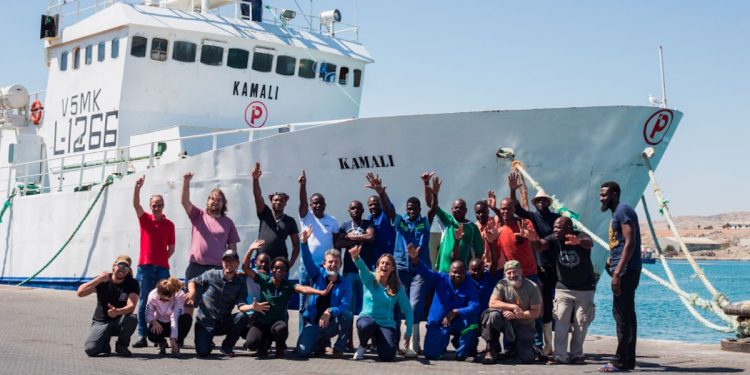The Nueva Pescanova Group has been recognised as the world’s top fishing company for its commitment to meet the UN’s Sustainable Development Goals (SDGs) and ranks fifth in the overall benchmark of seafood companies, according to Seafood Stewardship Index (SSI) launched by World Benchmarking Alliance.
The performance of the thirty largest seafood companies in the world benchmarked to those SDGs more closely related to a seafood business, with the aim of assisting them in building more sustainable and inclusive supply chains in the seafood sector.
‘We are really proud of being the top fishing company of the thirty largest seafood companies in the world committed to meeting to SDGs, for performing best in key areas such as our commitment to the sustainability of natural resources and to the communities in which we operate,’ said Nueva Pescanova CEO Ignacio González.
‘This recognition brings to light the company’s efforts in these areas and encourages us to continue to grow transparently and sustainably.’
He commented that Nueva Pescanova is firmly committed to creating a positive impact where it operates and understands the relevance of SDGs as guidelines to achieve a sustainable development. In this sense, the Group aligns its business strategy with these goals, and measures its contribution to meet the 2030 Agenda.
It is the only Spanish company in the Index, and according to the results obtained, it stands out on aspects such as governance and management of stewardship practices, taking into account stakeholders’ concerns, and a circular management approach, by applying standards for waste management as well as for a reduction in food waste, in addition to its commitment to the communities in which it operates, having enforced 226 projects in four countries.
According to Ignacio González, the Group has a Corporate Social Responsibility strategy based on respect for the planet, the personal and professional development of the people who make up the Nueva Pescanova Group, market engagement through its products, and the contribution to improving the livelihood of the communities in which it is present, without neglecting the principles of business ethics, institutional integrity and regulatory compliance.









